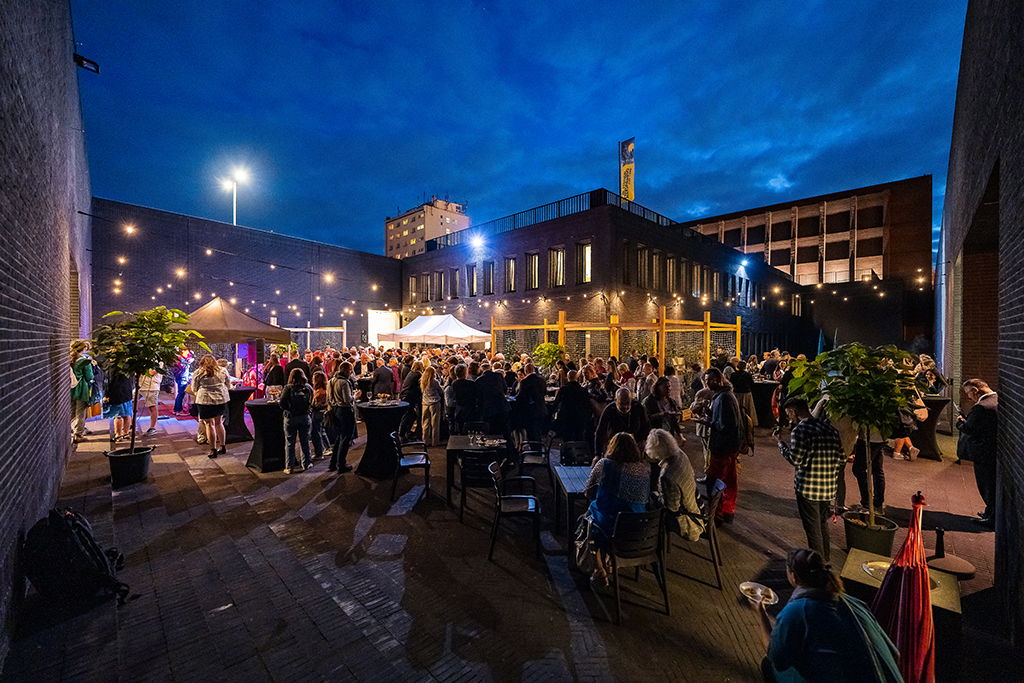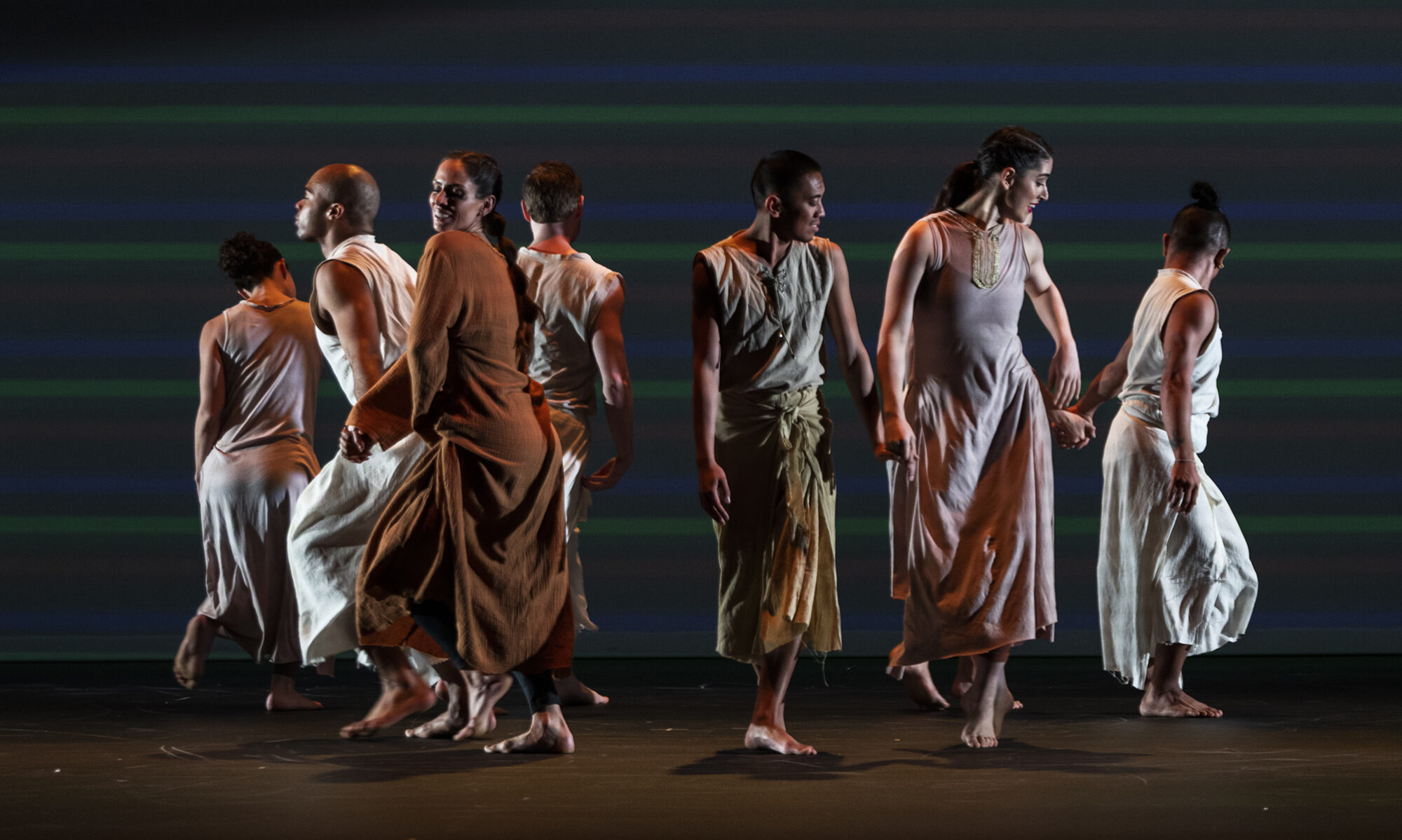Samba takes Lisbon

Catarine Lucas grew up in Manguinhos, a favela from Rio de Janeiro – Brazil. She is an independent cultural producer and researcher focusing on popular culture and music, in addition to other artistic passions, currently based in Lisbon – Portugal. She sees herself as a being on a journey of colonial deconstruction.
Catarine holds a B.A. in International Relations by Universidade Federal Fluminense and a M.A. in Cultural Studies by Université de Strasbourg and Universidad de Deusto.
This essay reunites some reflexions of a master’s thesis I wrote in 2023 for a programme called Euroculture: European society, culture, and politics in a global context, result of a scholarship from the European Union I was awarded. When I applied, this was the only consortium of the Erasmus Mundus programme in the cultural field. As is customary in Western tradition, Europe is the centre of attention in the only international programme on culture available by the EU. I come from the so-called subaltern world to draw attention to a cultural movement that, for me, explains much more of our history than a thousand words.
The current cultural landscape of Lisbon stands as a phenomenon to be investigated. Arriving for the very first time in the Portuguese capital can be an interesting experience for everyone. It is noticeable that the current cultural scene of Lisbon is marked by the strong presence of artists who migrated from other countries, especially the former Portuguese colonial countries or who descended from parents who migrated. Among all the diversity present in the cultural scene, a particular movement is getting more and more space: Samba.
Born in the beginning of the 20th century in Brazil, in the popular sense, samba is considered a musical genre and dance that reflects Brazil’s identity to the world. However, here samba will be treated as the legitimate cultural expression that it represents. According to Simas, samba is much more than a music genre or choreographic dance, it is a reference component of a wide range of cultures that originate from it and dynamically return to it.[1] The knowledge that circulates within samba includes ways of appropriating the world, creating community identities for people who have lost their connections to the community due to slavery, daily habits, ways of eating, drinking, dressing, burying the dead, loving, killing, honoring the gods, and praising the ancestors.[2]
Samba was created by Brazilians, whose ancestors were enslaved Africans brought by force to build the “new world” during the European colonisation process in the Americas. Therefore, Samba emerges as a historical result of the African diaspora through the reinvention of their cultures, due to the Portuguese colonial expansion. Brazil was the country that received the greatest number of enslaved African people while being a colony and Rio de Janeiro represented the main destination.[3]
Modern slavery was one of the most extreme forms of oppression and exploitation in human history, with deep social effects that persist to this day. It can be considered that modern slavery was the economic engine of the world at that time, shaping power relations until the present. It is impossible to dissociate the development of modern societies from the slavery of African and native peoples in the globe. Thus, slavery profoundly affected the colonised countries, as well as those involved in the slave trade, such as Portugal.
Over time, samba has undergone several influences, in addition to being harshly repressed. Samba and all the cultural expressions of the Afro-descendant community were considered offensive by the Brazilian dominant elite of the time, who sought to promote racial whitening projects and erase references to Brazil’s slavering past. The Samba makers, mostly Black and poor, were persecuted and criminalised for practicing and spreading samba. These repressive practices were even legally justified, based on a law called “Lei da Vadiagem” (the Vagrancy Law). Also, when captured by the recording industry, samba suffered a process of de-Africanisation, which is the remotion of contents that identify its African origins. The lesser use of percussion instruments in favor of instruments perceived as more sophisticated coming from a European tradition, such as stringed, wind or electric instruments, exemplifies this issue.
However, the great power of samba is its ability to transform itself. Lira Neto praises the mutable and migratory nature of samba, which, born from the “saracoteio” (shuffling) of rural drumming, penetrated the outskirts of major urban centers without asking for permission, and initiated in “terreiros” (ritual spaces), it integrated itself into the processions of carnival groups in perfect symbiosis with carnival. It is in this way that it has survived these 100 years throughout Brazilian history.[4] It is necessary to add to this reflection that this nature is so particular of samba, that it came with Brazilian immigrants and is currently paving its way on European soil. In this context, one is forced to ask what happens with samba when introduced in Portugal by Brazilian artists, a hundred years after it emerged in Brazil?
In Portugal, Brazilian music stands out with great relevance and have historically being present. However, the privileged Brazilian music genre disseminated for years was bossa nova, a style characterised by a strong influence of samba and American jazz, born by the end of the 1950s among young musicians from Rio de Janeiro’s middle class. Although the presence of Brazilians living in Portugal dates back to the colonial past that connects the two countries, it was only in the last decades of the 20th century that this presence became numerically significant. With the intensification of Brazilian migration to Portugal by that time, especially with people from different social layers migrating, we see that nowadays the way that Brazilian music is expressed takes a new approach, propitiating a space for manifestation of samba looking back on their African origins, especially in Lisbon.
Currently, Lisbon is marketed as a multicultural city. However, the memories of colonialism are still very present in the landscape and in the relationships established in the former metropolis of the Portuguese Empire. As an example, constructed in 1960 during the Salazar dictatorship, the monument Padrão dos Descobrimentos praising the “discoveries” of lands that were colonised during the Portuguese Empire stands as one of the most important touristic venues while it is one of the most representatives’ colonial symbols in Lisbon. In general, the colonial past alongside with slavery is often addressed in a subdued manner, due the myth of a peaceful colonisation still being cultivated among the Portuguese society. While this, the power dynamics between Portugal and the migrants from its former colonies reveals a series of prejudices and stereotypes, which also manifests in the cultural field. It is important to consider that it was only in 1975, precisely 50 years ago after much struggle, that the last Portuguese colonies in Africa achieved independence.
According to the researcher and journalist Roberto Moura, the “roda” (the circle) is the beginning of everything, it existed even before samba became samba, it precedes it. The “roda de samba” (a social gathering in a circle format) has a crucial role as a fundamental element in generating, preserving, and disseminating samba. After observing some rodas de samba in Lisbon from December 2021 to mid-2023, I concluded that samba is expressed in Lisbon preserving its characteristics as it originated in Brazil, but with the political engagement that is specific to samba as a cultural expression of resistance reinforced when the immigrant artists face the colonial structures still present in Lisbon.
In terms of preserved characteristics from Brazil, it is evident that the sense of collectivity is integral to the formation of the samba groups and that the rhythms and sounds of percussion instruments continue to hold a central place within the rodas de samba, celebrating Afro-Brazilian origins and maintaining a connection to spirituality, even in the presence of a variety of instruments. Furthermore, the lyrics and performances of the samba songs reflect a deep reverence for Afro-Brazilian heritage, also a strong spiritual connection, and a commitment to socio-political causes such as anti-racism efforts. Above all, there is a profound awareness of samba’s role as a symbol of resistance.
However, Samba faces the backdrop of a city that reflects the colonial past that shaped Portugal’s economic, political, and social development over several centuries. Lisbon is undeniably a former metropolis, and the colonial past continues to influence the lives of former imperial metropolises. In agreement with Guerreiro, this influence is not confined to the preservation of imperial-related monuments, official speeches, and other exceptional occurrences but can also be observed in everyday interactions on the city’s streets.[5]
For example, this colonial past is reflected when Portuguese bar owners or event organisers fail to value samba, not taking the genre seriously and downplaying its significance due to it being a Brazilian cultural expression, or when a photo depicting a nude woman dancing samba is present in one of the venues where the rodas de samba performed. It can also be noted that Portuguese institutions are still deeply influenced by the colonial past. The fact that a project called Samba Colaborativo no longer obtains a license from the administrative body of the region to carry out its activities on the street highlights this relationship. This is especially evident because the justifications provided for not granting the license anymore have weak foundations while events in similar conditions are allowed by institutions, but with different music genres in focus, revealing a bias.
Indeed, it is highly significant that the samba song “Histórias para ninar gente grande”, which openly criticises the epistemological legacy of Eurocentrism and thus relates to the concept of coloniality of knowledge, while also aiming to tell the true history of Brazil and advocating for an emancipation of knowledge, was present in all the analysed rodas de samba. It was also sung during the celebration of the bicentennial of Brazilian independence from Portugal in 2022 by Coletivo Gira at the residence of the Prime Minister of Portugal, Rebelo de Souza, with him in attendance. It’s interesting to note that months later, during the visit of the newly-elected President of Brazil (Lula da Silva), Rebelo de Souza publicly stated that Portugal owes an apology for colonialism, but above all, must fully acknowledge its responsibility for the exploitation and slavery it entailed.[6]
Through the theoretical lenses of the decolonial approach, it can be said that the rodas de samba in Lisbon become a cultural manifestation situated in a border space, permeated by colonial difference, where the coloniality of power (the idea that race and racism constitute organising principles of capital accumulation on a global scale and power relations within the world-system[7]) operates, represented by the context of Lisbon along with its institutions and Portuguese society. As discussed by Joaze and Grosfoguel, it is from this position that border thinking can emerge as a decolonial project.[8] From a decolonial perspective, borders are not only spaces where differences are reinvented; they are also enunciative loci from which knowledge is formulated based on the perspectives, worldviews, or experiences of subaltern subjects. Implicit in this statement is a connection between place and thought.[9]
The popular nature of the rodas de samba, with their ability to bring people together, especially the Samba Colaborativo project due to its street setting that reaches everyone passing by, particularly the immigrant community in Portugal, with the distinctive sound of percussion and the lyrics of sambas that possess both celebratory and political aspects, makes the rodas de samba a decolonial project with significant potential to foster the emergence of border thinking among its participants. However, this is only possible because the analysed groups assert their ethical-political stance as artists, when they position themselves.[10]
Therefore, it is possible to state that with the migration phenomenon “black responses to modernity”[11] through culture are being given at the heart of where modern society was created, i.e. on European soil when samba takes Lisbon. This movement is mainly driven by Brazilian immigrants in Lisbon who express their culture as a way of re-territorialising themselves on European soil, just as their African ancestors who created samba sought to territorialize themselves on Brazilian soil a hundred years ago.
I couldn’t end up this article without addressing a special thanks to the rodas de samba mainly observed during this research (Coletivo Gira, Viva o Samba and Samba Colaborativo project). In addition to all the samba community I had the chance to chat for the construction of this analysis.
[1] Simas, Luiz Antônio. O corpo encantado das ruas. Rio de Janeiro: Civilização Brasileira, 2019. P.114.
[2] Ibid.
[3] “Sankofa – A África Que Te Habita – Documentários – RTP”. Acessed on May 20 2023. https://www.rtp.pt/programa/tv/p39360.
[4] Neto, Lira. Uma história do samba as origens. Rio de Janeiro. 2017. P.16.
[5] Guerreiro, Amanda Fernandes. “«Isso aqui é o Brasil!»: uma etnografia sobre músicos brasileiros em Lisboa,” Universidade de Lisboa, 2020. P.70.
[6] “Portugal Should Apologise for Colonialism, Says President Rebelo de Sousa | Euronews.” Accessed July 16, 2023. https://www.euronews.com/2023/04/26/portugal-should-apologise-for-colonialism-says-president-rebelo-de-sousa.
[7] Wallerstein, Immanuel. World-System Analysis: The Second Phase. Review, XIII, 2, 287-93, Spring, 1990. P. 298.
[8] Bernardino-Costa, Joaze, and Grosfoguel, Ramón. “Decolonialidade e perspectiva negra”. Sociedade e Estado 31, no 1: 15–24. 2016. P.18.
[9] Ibid.
[10] Ibid. P.19
[11] Gilroy, Paul. O Atlântico Negro: modernidade e dupla consciência. Rio de Janeiro, 34/Universidade Cândido Mendes – Centro de Estudos Afro-Asiáticos, 2001. P.164
Festival Life creates shared moments of audiences and artists, eye-to-eye


